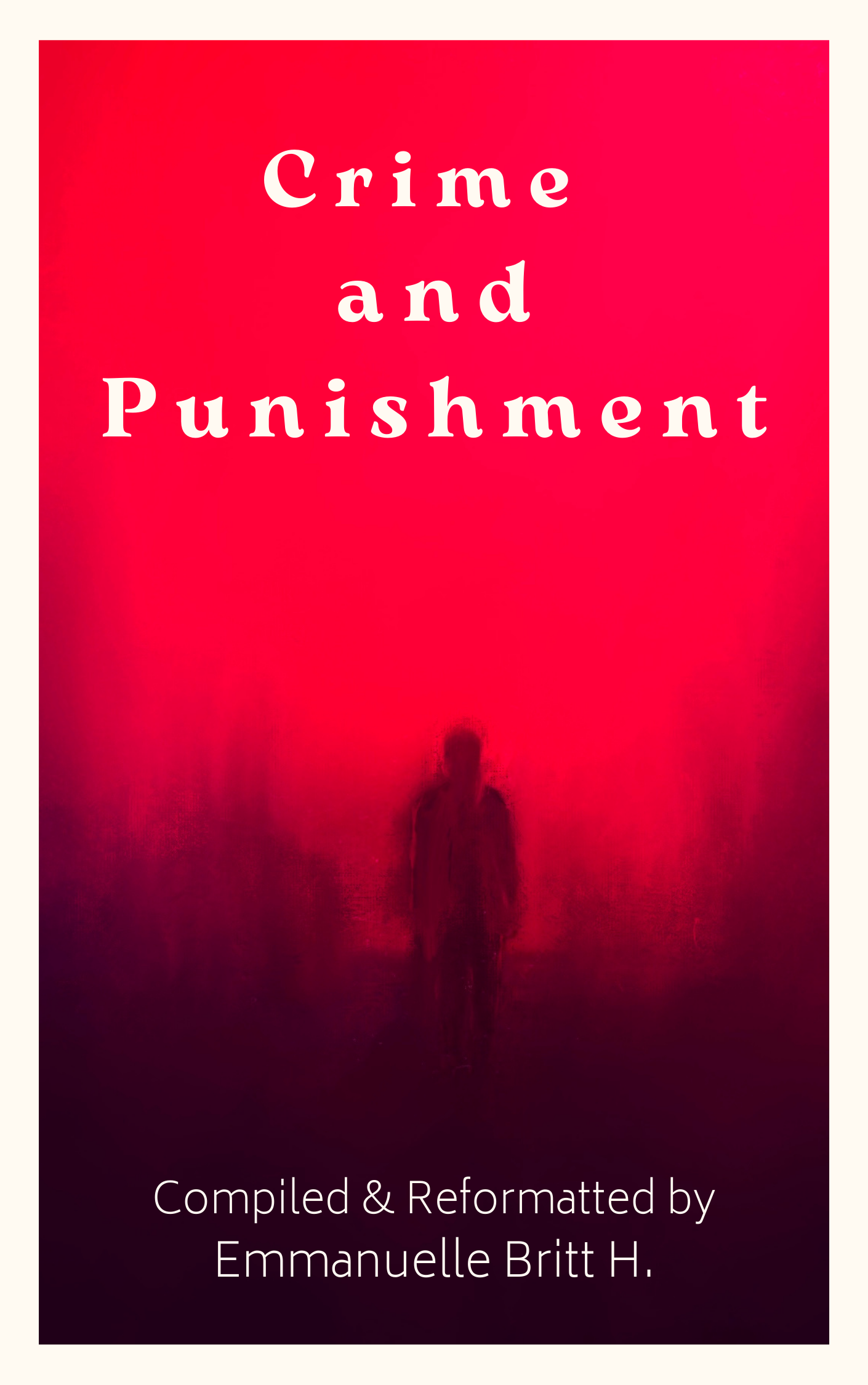
CRIME AND PUNISHMENT
CRIME AND PUNISHMENT
By Fyodor Dostoevsky
Published in 1867
Translated By Constance Garnett
Compiled and reformatted By Emmanuelle Britt H. 2023
WHY YOU SHOULD READ CRIME AND PUNISHMENT
"Crime and Punishment" is a novel that should be read for several compelling reasons. Firstly, it presents an intriguing moral dilemma that explores the question of whether there can ever be a morally justifiable reason to commit a crime. The book delves into the complexities of right and wrong, challenging readers to contemplate the idea of a greater good and whether crimes can be pardoned if motivated by morally upright intentions.
The novel also offers a cast of compelling characters that captivate readers. The protagonist, Raskolnikov, grapples with the belief that he may be a "great man" who can transcend societal norms. His internal struggles and the choices he makes raise profound questions about the nature of good and evil. Alongside
Raskolnikov, Sonia represents a character facing a difficult choice between preserving her moral integrity and providing for her struggling family. Their journeys prompt readers to reflect on their own values and the consequences of their actions.
Another fascinating aspect of the book is the philosophy embodied by Svidrigailov, who maintains that "all is permissible." This rejection of traditional morality and exploration of humanist perspectives adds depth to the narrative. Svidrigailov's character arc raises thought-provoking questions about the boundaries of ethical behavior and the consequences of disregarding moral judgment.
Dostoevsky's portrayal of Raskolnikov's descent into madness is another compelling reason to read the novel. The author skillfully depicts Raskolnikov's psychological turmoil, his feverish moments, and his stream-of-consciousness style of writing. Readers are immersed in the protagonist's mind, questioning their own sanity and experiencing a unique perspective on ordinary events.
Lastly, the atmospheric setting of urban St. Petersburg during the 1860s adds depth and richness to the story. The novel unfolds in taverns and cramped rented rooms, offering a vivid portrayal of the city's gritty and impoverished areas. This setting provides a glimpse into Russian society of the time and enhances the overall reading experience.
In conclusion, "Crime and Punishment" is a thought-provoking and engrossing novel that tackles profound moral questions, features compelling characters, delves into themes of madness, and presents an immersive depiction of urban Russia. Its exploration of moral dilemmas, captivating characters, and
atmospheric setting make it a must-read for those seeking a compelling literary experience.
